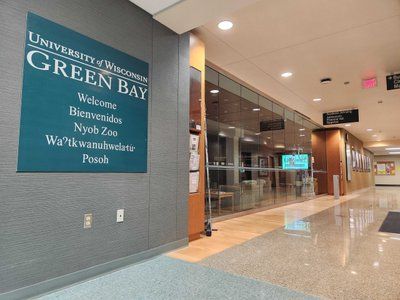By Dimitry Voronov
MADISON – When Troy Runge was appointed as the director of the Wisconsin Bioenergy Initiative in May 2009, he knew he would be tackling one of the greatest challenges of our time. His enthusiasm for that challenge was evident when he spoke April 27 at the Wisconsin Innovation Network’s Madison chapter.
“I truly have the coolest job in the world,” said Runge, who leads a coalition tasked with meeting future energy needs in Wisconsin and beyond. “I was teaching sixth graders how to make biofuels from gummy bears this morning, talking to you right now, and later today I will research ways to make jet fuel out of woodchips.”
Runge, a former research director at Kimberly-Clark Corp. and a graduate of the Institute of Paper Science and Technology at the Georgia Institute of Technology, is at the center of most of the bioenergy research conducted in Wisconsin.
The WBI is a public-private partnership in bioenergy research, outreach, training and economic development based in the College of Agricultural and Life Sciences at the UW-Madison. The coalition understands that growing the economy in a sustainable way is a tall order, and believes that accelerating the development of bioenergy to replace fossil fuel consumption is a great jump-off point.
“As an engineer, I like to solve problems,” Runge said. “It is important to consider issues such as the changing climate, water and air quality, global population and fossil fuel consumption.”
Paul Meier, director of the University of Wisconsin Energy Institute, also addressed about 100 people at the WIN-Madison meeting. As director of the Institute, Meier coordinates interdisciplinary energy research, educational, and outreach activities across several campus centers and departments.
Meier noted that UW-Madison ranks third among all universities in science and engineering research spending, according to 2008 National Science Foundation figures, and that the campus has 130 different active energy projects with more than 60 principal investigators.
An abundance of researchers and projects requires ample work space, and the new $50 million Wisconsin Energy Institute building project will help to provide it. Located at the site of the old University Health Building on University Avenue, the building will help the WBI achieve its goal of creating renewable energy in a sustainable manner.
As one of the building’s occupants, WBI will be joined by the Great Lakes Bioenergy Research Center, focusing on converting plant biomass into renewable fuel. Construction on the 200,000-square-foot building is scheduled to end in late 2012, and although funding for the building will dictate its final lay-out, the overall picture has already been established.
“The first floor will be used for demonstrations and meetings for educational outreach,” Runge said. “Floors two through five will hold renewable energy laboratories, offices, and conference rooms.”
For Runge, who’s just as comfortable working with sixth-graders as Ph.D scientists, the new facility will serve as just another perk that goes with having “the coolest job in the world.”
Voronov is a student in the UW-Madison Department of Life Sciences Communication.





